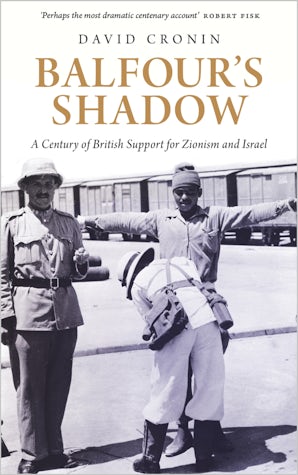David Cronin
Sat, 27 Apr 2019, 09:00
Location TBC, London (UK)
Speaking as part of the 'Present Absentees: Palestinian Citizens of Israel & the Nation-State Law' conference
Palestinian citizens of Israel – who were displaced in the Nakba of 1948 but were incorporated into the nascent state of Israel – are often written out of the Israel-Palestine conflict. Fitting neatly neither into discussions of diaspora Palestinians nor of the occupied Palestinian territories, their situation is both unique and multifaceted and, as a result, often goes unmentioned.
Palestinian citizens of Israel often live a few miles from their original villages yet, like all Palestinians, are denied the right of return.
In 1950, Israel declared Palestinian citizens of Israel “present absentees”, a legal mechanism which facilitated the appropriation of their ancestral homes, many of which are now inhabited by Jewish Israelis.
Numbering 1.8 million and constituting over 20 per cent of Israel’s present day population, Palestinian citizens of Israel have once again been made present absentees by the passing of Israel’s Nation-State Law in July 2018.
What does the future hold for Palestinian citizens of Israel?
Join our international panellists to explore the future on Saturday, 27 April 2019 at Euston Road, London [venue details will be emailed to you 2-4 days before the event]
Our international line-up of guests include:
Dr Yousef Jabareen MK
Member of Knesset, Israel
Prof Joseph Massad
Colombia University, US
Prof Oren Yiftachel
Ben Gurion University of the Negev, Israel
Jonathan Cook
British journalist based in Nazareth, Israel
Prof As’ad Ghanem
University of Haifa
David Cronin
The Electronic Intifada
Nadia Hijab
Al-Shabaka: The Palestinian Policy Network
Dr Mazen Masri
City, University of London, UK
Sami Abu Shehadeh
Former member of Tel Aviv-Jaffa Municipality Council, Israel
Maria Zahran
Adalah – The Legal Center for Arab Minority Rights in Israel
Prof Kamel Hawwash
University of Birmingham, UK
Salma Karmi-Ayyoub
Barrister, UK
Karl Sabbagh
British-Palestinian Author, UK
Marzuq Al-Halabi
Oxford Research Group, UK
Alan Waddams
Former Chairman of Medical Aid for Palestinians (MAP), UK
Hannah Phillips
Arab Organisation for Human Rights (AOHR), UK
The Conference in Detail:
Palestinian citizens of Israel – who were displaced in the Nakba of 1948 but were incorporated into the nascent state of Israel – are often written out of the Israel-Palestine conflict. Fitting neatly neither into discussions of diaspora Palestinians nor of the occupied Palestinian territories, their situation is both unique and multifaceted and, as a result, often goes unmentioned.
Palestinian citizens of Israel often live a few miles from their original villages yet, like all Palestinians, are denied the right of return detailed in United Nations Resolution 194 (1948). Implementing the Absentee Property Law in 1950, Israel declared Palestinian citizens of Israel “present absentees”, a legal mechanism which facilitated the appropriation of their ancestral homes. Many of these homes are now inhabited by Jewish Israelis, while the remains of depopulated Palestinian villages are buried under national parks and forestation initiatives.
Numbering 1.8 million and constituting over 20 per cent of Israel’s present day population, Palestinian citizens of Israel have once again been made present absentees by the passing of Israel’s Nation-State Law in July 2018. Declaring Israel the “historical homeland of the Jewish people” in which “the right to exercise national self-determination […] is unique to the Jewish people,” the text makes no mention of the Palestinian citizens of Israel.
To counter this erasure, Palestinian citizens of Israel need to be written-back into the discourse. Using the Nation-State Law as a framework, this conference provides a platform for exploring the inimitable challenges faced by Palestinian citizens of Israel, seeking to analyse the inherent contradiction in Israel’s claim to be both Jewish and democratic; its legal mechanisms which institutionalise discrimination against non-Jews in economic, political and social spheres; and the applicability of the apartheid analogy to the discussion.
The Nation-State Law was met with widespread condemnation, not only from Palestinian citizens of Israel but from their compatriots in the Druze, Mizrachi Jewish and myriad Christian communities. What new opportunities could this present for cooperation between Palestinians and other minorities in the struggle for equal recognition within a democratic Israel? Could the Nation-State Law contribute to a shift away from the two-state solution towards other, previously side-lined alternatives for peace?
FAQs
Where is the conference being held?
The conference will take place at a location near Euston/Kings Cross, with great public transport links. Registrants will be sent the full address a few days before the conference.
How can I contact the organiser with any questions?
Please pop us an email at [email protected], or call us on +44 (0)20 8838 0231
Do I have to bring my printed ticket to the event?
Nope! It’d be helpful if you do bring a printed ticket or show us the ticket confirmation on your phone, but we can still sign you in without them – we will just need the name used during registration!
Can I update my registration information?
Sure. You can amend the number of tickets, or cancel your tickets, through your EventBrite account. Alternatively, simple email or call us using the details above.
Will the event be Live Streamed?
Unfortunately not. However, we will be sharing snippets during the conference on our Facebook and Twitter page, and will also be Live Blogging on our website through the event.
Please note: The event will be filmed and photographed by us and third-party media partners. By attending you consent to your image being used in broadcast and marketing by Middle East Monitor and our media partners.


